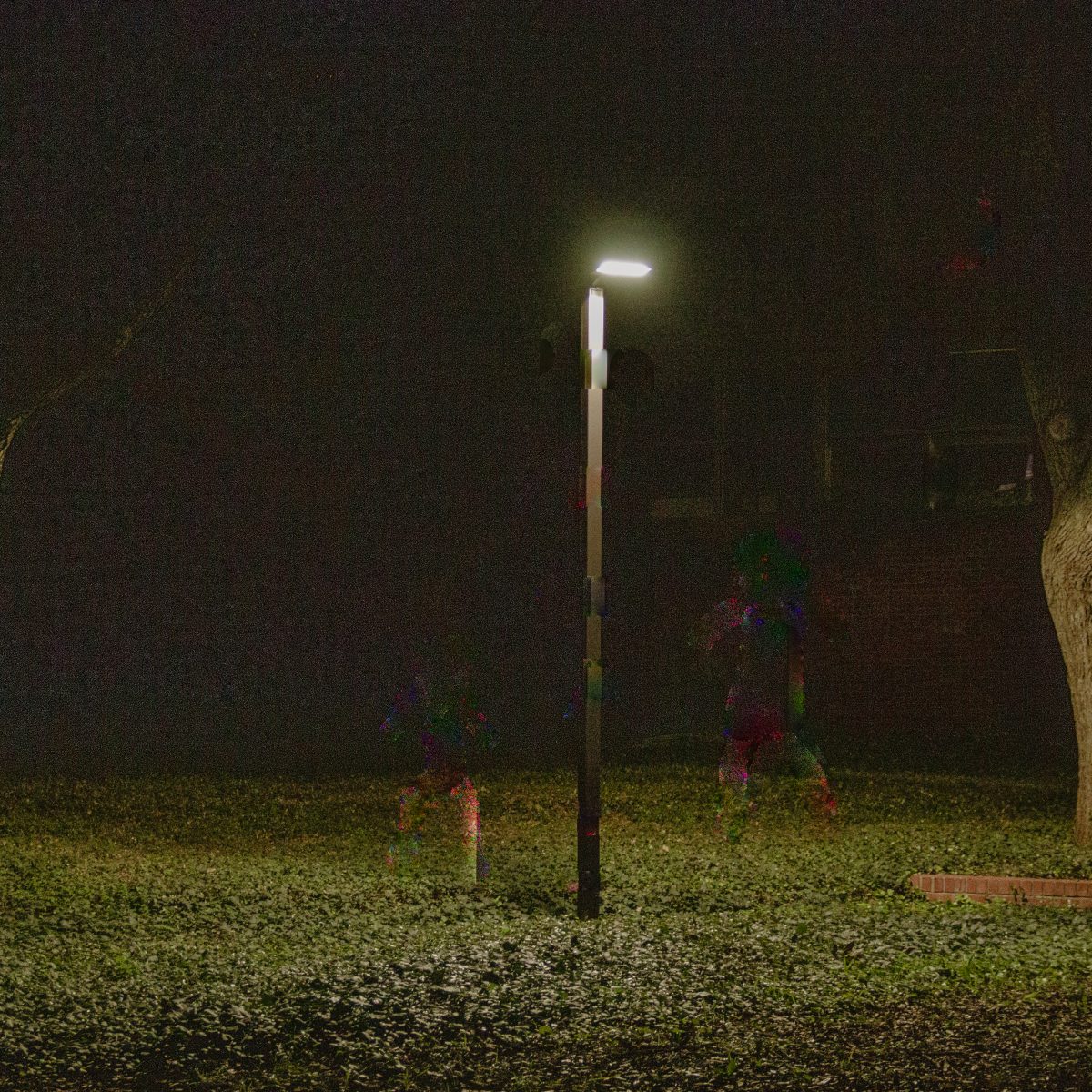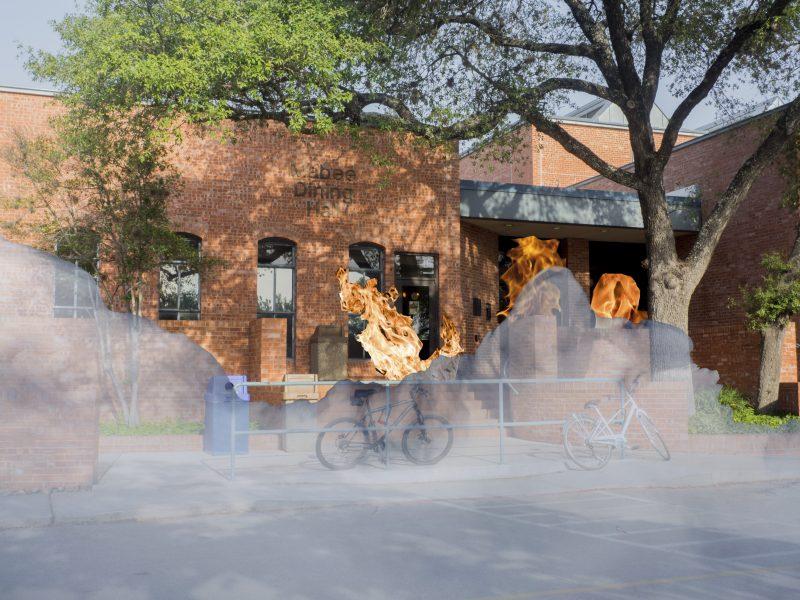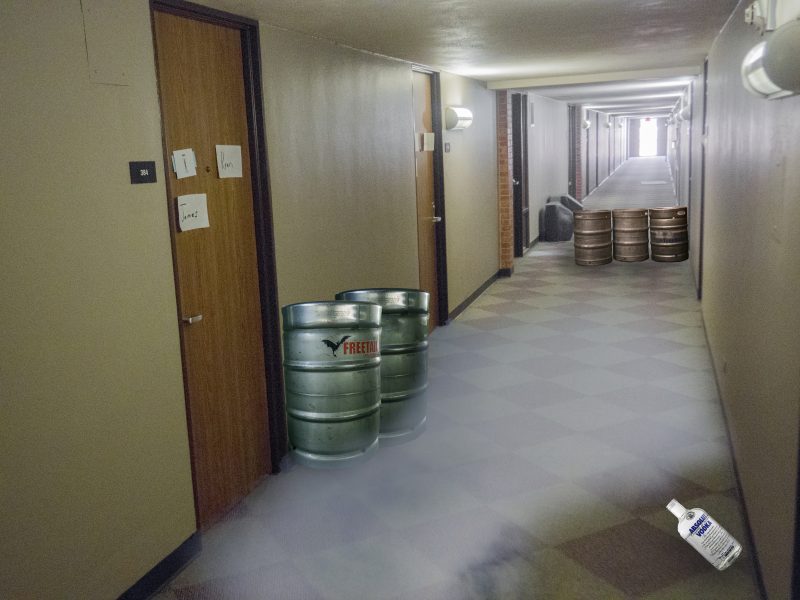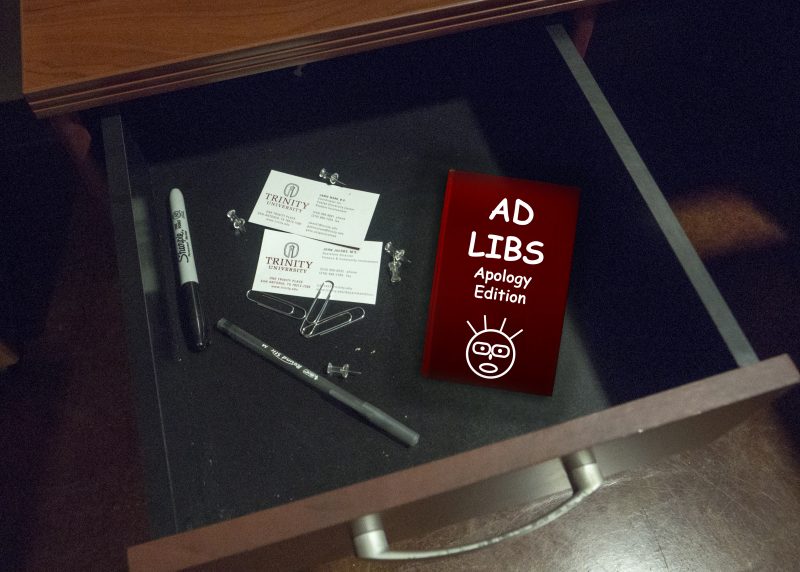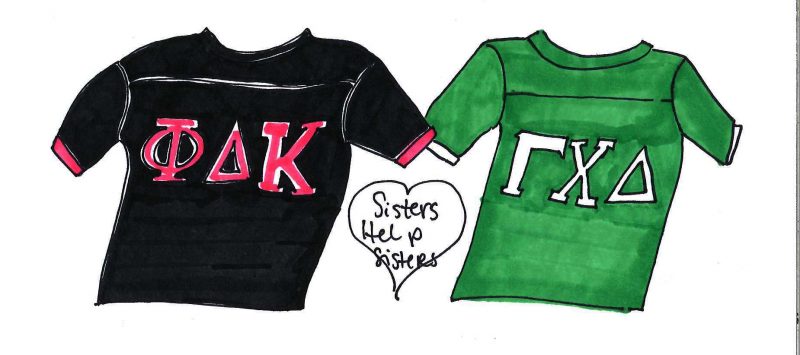Every college applicant is familiar with the enticing marketing material sent out by universities and plastered all over the front page of their websites. This material consists heavily of idyllic images of students studying around scenic campuses, often sprawled out on the grass or having very deep conversations — probably about existentialism, Marxism or quantum physics.
In Trinity’s case, the images probably contain at least one white lawn chair. There seem to be bonus points, from a marketing photographer’s perspective, if Miller Fountain is somehow included in the shot. However, these seemingly candid photographs may, in fact, be the product of deception.
It has come to light recently that Strategic Communications and Marketing is financially compensating the students who study in the lawn chairs out by Miller Fountain. This compensation requires students who are desperate for some quick cash to study near the fountain, which creates both a picturesque photo opportunity for marketing purposes and an impressive tableau for the benefit of any visiting prospective students and families.
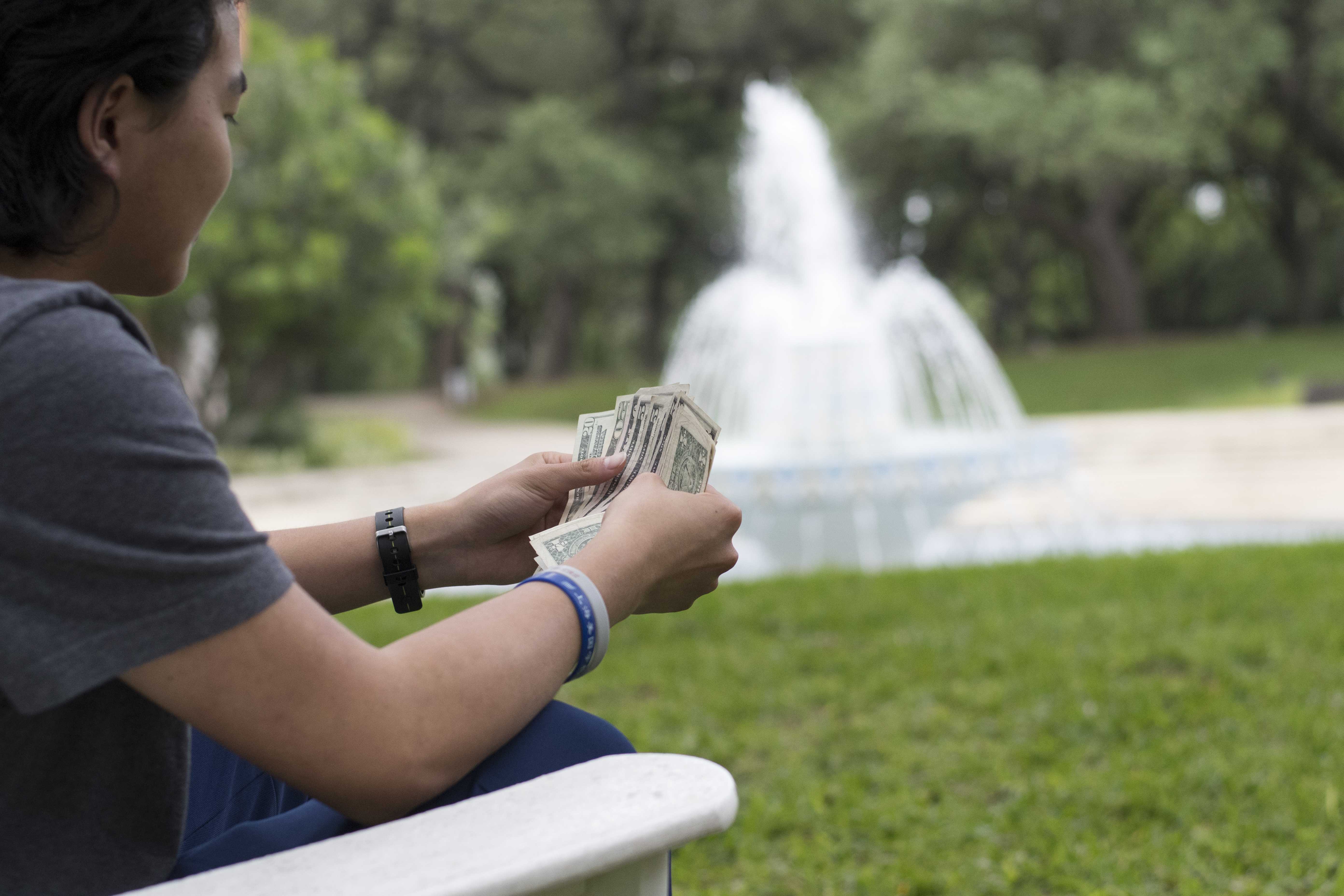
“It’s really a great opportunity for students,” said Marc Sleezy, student resources coordinator. “They get a beautiful place to study, and they also get paid for it.”
Sophomore Grace Dealy, one of the students who gets paid to study outside the fountain, explained that her job is not all it’s cracked up to be.
“A lot of the time my homework gets wet,” Dealy said. “If it’s a particularly windy day, sometimes it gets to the point where I can’t even read my own handwriting. I’ve been through three laptops already this school year because they keep getting water damaged.”
Strategic Communications and Marketing has neither reimbursed Dealy for the new laptop nor offered to raise her salary.
“I make about five dollars an hour, so unfortunately I’m actually losing more money than I’m making right now,” Dealy said. “But I’m really hoping to expand my resume, so I’m going to stick with it.”
In response to accusations of dishonesty and false advertising, head of Strategic Communications and Marketing Kelly Pusher explained that they have never falsely represented the university with any of their promotional materials.
“We clearly label all of our photos with a disclaimer regarding the financial compensation of these seemingly candidly placed students,” Pusher said. “If you look at the bottom corner of any and all pictures containing students studying around Miller Fountain, you will find a line of text explaining that these pictures are not impromptu.”
Pusher added that the text on these photos is in size 0.2 font, and upside down.
“The disclaimer is there, it is clearly visible with the aid of a simple magnifying glass, therefore it is all completely legal,” Pusher said.
The university has issued a statement in support of Strategic Communications and Marketing’s strategies.
“The promotional images used by Strategic Communications and Marketing were not misrepresentative of Trinity in any way, nor were any of their actions illegal. Therefore, we find no reason to condemn them or ask them to stop,” the statement read.
Dalton Weeb, a junior communication and political science major, disagrees. He is organizing a student protest of the office’s practices because he argues that prospective students could easily get the wrong impression from the pictures.
“Personally, I just don’t want anyone to make the same mistake that I made. I chose Trinity because I thought that everyone spent most of their time outside in white lawn chairs. Needless to say, when I got here I was sorely disappointed. Now, learning that those pictures weren’t even genuine in the first place … I honestly feel scammed,” Weeb said.
Weeb is a strong proponent of peaceful resistance and hopes that he can accomplish his agenda without having to resort to more strong-armed methods, such as legal action.
“All I’m asking is that they either clearly label these pictures as contrived or stop using them,” Weeb said. “I am an advocate for transparency and I hope that other universities who may be using the same deceptive strategies to lure students might see Trinity as an example and stop the staging.”
In fact, it has not been proven whether or not other universities pay their students to sprawl out on lawns and study near campus landmarks. Weeb plans to expand his movement if it proves successful at Trinity.
“Right now we’ll really just have to wait and see. I’m confident that once people understand the size and scope of this problem, they’ll join our cause,” Weeb said.
Weeb asks any interested parties to contact him at [email protected].
This is a work of satirical fiction produced for the 2018 issue of the Trinibonian.




